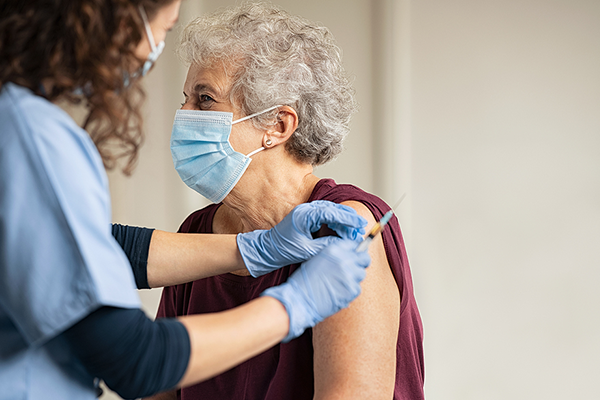3 Key Things to Know About mRNA Vaccines
You may know that the COVID-19 vaccines that received emergency approval and are being distributed as “mRNA vaccines.” The mRNA (messenger RNA) vaccines represent an innovative type of vaccine that’s paving the way forward for researchers and scientists.
mRNA Vaccines Work Differently
There is a difference in how mRNA vaccines works compared to other standard vaccinations.
More traditional vaccines use a weakened or inactivated version of a virus or bacteria to help the body build up defenses against it. But the mRNA vaccines, including the approved COVID-19 vaccines from Pfizer and Moderna, teach the body’s cells how to make a “spike” protein that stimulates an immune response within the body. That immune response then protects you from being infected.
mRNA Vaccines Don’t Affect Your DNA
It’s commonly misinformed that mRNA vaccines can impact your DNA and alter your genetic code. That is not true.
mRNA is found in all living cells within the body. It is different from DNA, and the two entities are not interchangeable or combinable.
So, when you receive an mRNA vaccine, it’s simply giving your RNA a “message” about how to create a protein that causes an immune response.
mRNA Vaccines Aren’t an Entirely New Thing
While you may never have heard about mRNA vaccines until now, they have been in the works for a long time. In fact, research into “better” vaccines and the mRNA vaccine model began several decades ago.
Traditional vaccines, which rely on inactivated forms of a virus or other germ, take a long time to develop. Researchers looked for a way to produce vaccines faster, which led them to study reactions within the body. This eventually led them to the mRNA vaccine creation method, which can develop vaccines in a fraction of the time compared to traditional vaccines. That’s why the COVID-19 vaccines received FDA approval as fast as they did.
Click here to find out more information around mRNA vaccines from Dr. Phillip Coule who serves as the Vice-President and Chief Medical Officer of the Augusta University Health System and serves as the Associate Dean of Clinical Affairs of the Medical College of Georgia.





